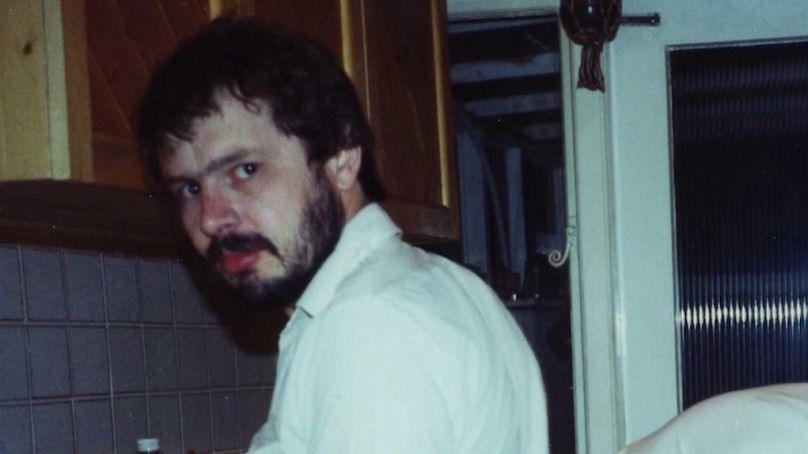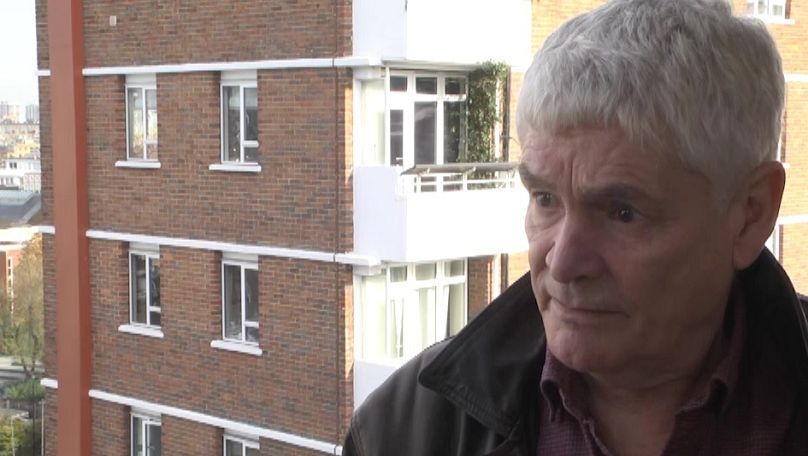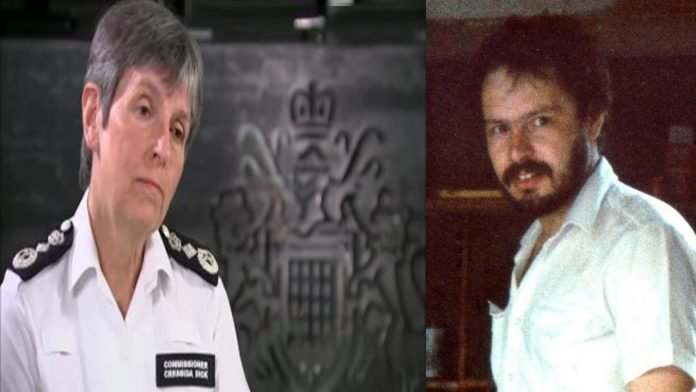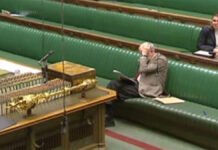Cressida Dick, the Metropolitan police commissioner, has been personally censured for hampering an inquiry into police corruption in the long-running Daniel Morgan murder case.
The report of an independent panel inquiring into his death in 1987 found that the Met was “institutionally corrupt” in its handling of the case and accused the force of placing concerns about its reputation above properly investigating. It said the Met misled the public and Morgan’s grieving family.
It said the Met delayed handing over vital documents, which then delayed the work of the panel, which was set up in 2013 but is only able to report now, eight years later.
The purpose of the inquiry was to investigate claims of police involvement in Morgan’s murder and corruption in the subsequent investigations.
Daniel’s brother Alastair Morgan has relentlessly lobbied politicians and journalists and published a successful book, “Untold: Exposing the Truth Behind the Daniel Morgan Murder”.
He hopes the report will be able to explain why nobody has ever been convicted of the murder.

More than 34 years after London-based private investigator Daniel Morgan was axed to death in a pub car park, his family hopes the results of an inquiry will provide some long-awaited answers.
The eight-year-long probe into the murder has cost around £16.1m and the panel’s findings were finally released on Tuesday (June 15) in a 1,200-page report.
The report has found that ‘Systemic failings, failings of individual officers, and lack of candour’ just some of the conclusions on how London’s Metropolitan Police dealt with a 1987 murder.
The report criticised police delays in giving access to a police sensitive database, called “Holmes”: “The panel has never received any reasonable explanation for the refusal over seven years by [then] Assistant Commissioner Dick and her successors to provide access to the Holmes accounts to the Daniel Morgan independent panel.”
In a statement accompanying the huge report, Baroness Nuala O’Loan wrote:
“By not acknowledging or confronting, over the 34 years since the murder, its systemic failings, or the failings of individual officers, by making incorrect assertions about the quality of investigations, and by its lack of candour, which is evident from the materials we have examined we believe the Metropolitan Police’s first objective was to protect itself. In so doing it compounded the suffering and trauma of the family. The Metropolitan Police were not honest in their dealings with Daniel Morgan’s family, or the public. The family and the public are owed an apology.”
This, the report says, “caused major delays and further unnecessary distress to the family of Daniel Morgan”.
Morgan, 37, was a private detective based in south London. Together with his business partner, Jonathan Rees, he ran an agency called Southern Investigations.
On 10 March 1987, Morgan was found murdered in the car park of the Golden Lion pub in Sydenham, south London, with an axe embedded in his head. Two sticky plaster strips had been wrapped around the axe handle to prevent fingerprint evidence from being left behind.
The Metropolitan police have accepted the first murder investigation was blighted by corruption. To this day, no one has been convicted of Morgan’s murder despite five investigations. The last attempt collapsed at the Old Bailey in 2011.
In 2017, four men targeted by the Met sued the force in the high court, alleging malicious prosecution. Among them were Rees and his brothers-in-law, Glenn and Garry Vian. They denied charges of murder. The three men lost their case against the Met but won a later appeal and were awarded £414,000 between them. The fourth man, Sid Fillery, accused of perverting the course of justice, won part of his claim. He left the Met in 1988, having served as a detective.
In 2013 the then home secretary, Theresa May, was concerned about the lingering claims of corruption and wrongdoing and set up the inquiry into Morgan’s death. It took eight years, much longer than anticipated.
According to the inquiry panel’s website, it has been examining “police involvement in Daniel Morgan’s murder, the role played by police corruption in protecting those responsible for the murder from being brought to justice, and the failure to confront that corruption”.
It also looked into “the incidence of connections between private investigators, police officers and journalists at the News of the World and other parts of the media, and alleged corruption involved in the linkages between them”.
Morgan’s family has fought to get the killers convicted, and expose those who were allegedly corrupt and those who failed to stand up to corruption. His brother Alastair has claimed there was a cover-up.
Alastair also wants some light to be thrown on numerous investigations that were tainted by claims of corruption and incompetence.
He has also long-suspected close collusion between media organisations and law enforcement authorities.
“There are three elements in this tale. There’s the police and the murderers. Then we have government and there is the press,” said Alastair.
“There was, I believe, police corruption of one description or another either inside the investigations or externally within the police; making decisions and affecting the tapestry.”

Daniel’s partner in the private investigation firm was Jonathan Rees who had close links with local police officers.
Alastair claimed there were many questions to be answered about Rees’ background and involvement.
“This guy had a lot of contacts in the police,” he said.
“What I didn’t realise at that time was that it went much, much deeper than that. There were deep, dark corners in these relationships that I was completely unaware of.”
Rees was one of four men charged with Morgan’s murder in 2008. They were later cleared when the case collapsed.
One of the others charged was Detective Sergeant Sid Fillery, a close friend of Rees who, after Daniel’s murder, became a partner in the private investigation company.
Suspects monitored
Both Rees and Fillery became suspects in the murder investigation and police began monitoring their activities. This led to Rees being arrested for planting cocaine on the innocent wife of a client who was fighting for custody in a divorce battle.
Rees was jailed for seven years in 2000 for the offence.
Fillery was convicted in 2003 of possession of indecent images of children on a computer seized by investigators. He received a three-year community rehabilitation order.
A fresh investigation was launched in 2006 and was headed by Scotland Yard officer, DCS Dave Cook. Cook was married to a BBC presenter, Jacqui Hames, whose phone was hacked by News of the World journalists who believed she was having an affair with Cook. They were unaware the couple were actually married.
Hames received substantial damages for the intrusion.
The fresh investigation led several new witnesses to come forward, including some organised criminals. Rees and two of his in-laws, Garry and Glenn Vian, along with another man, were charged with murder.

Fillery was charged with perverting the course of justice but the case collapsed in 2011 after it was found that some informants gave false evidence.
Alastair spoke of his shock when the first witness began giving evidence in court. Alastair said of the witness: “He had been asked, by Jonathan Rees, to find someone to murder my brother – on several occasions.”
It was later revealed that the witness was a known criminal who was employed by Rees to manage the accounts of the firm. Alastair said the witness claimed that Rees had said his “friend, Sid Fillery, was going to be on the investigation and he is going to sort it out.”
‘Stinking mess’
Cook was criticised when the case collapsed but Alastair believes he was handed a “poisoned chalice” in a system that had evaded honesty.
Alastair said he frequently messaged the inquiry panel to suggest “There is a morass of corruption in our culture that embraces police corruption, hardcore criminals, senior executives of the press, senior police officers and it’s a dirty, stinking mess.
“I discovered that there was a lucrative business going on between journalists, on the one hand, police and the suspects in my brother’s murder.”
Tuesday’s report may reveal whether such allegations are founded but its release had already been delayed by British interior minister, Priti Patel. It has prompted criticism by opposition politicians that there was an attempt to cover up details of the report, which might implicate Rupert Murdoch’s media empire.
Labour MP Chris Bryant said: “People with very close friends in News International might want to delay or even prevent this publication.”
The Home Office insisted that they were obliged to check the report for any national security concerns.
Family lawyer response
Raju Bhatt, a lawyer for the Morgan family said the panel has “finally named the sickness …. the police corruption and criminality that has wrecked our lives”
He added that institutional corruption in the police is not just historical, but “a current problem”.
Morgan’s family has fought to get the killers convicted, and expose those who were allegedly corrupt and those who failed to stand up to corruption. His brother Alastair has claimed there was a cover-up.
Daniel Morgan was married and had two children at the time of his death.
Help Us Sustain Ad-Free Journalism
Sorry, I Need To Put Out the Begging Bowl
Independent Journalism Needs You
Our unwavering dedication is to provide you with unbiased news, diverse perspectives, and insightful opinions. We're on a mission to ensure that those in positions of power are held accountable for their actions, but we can't do it alone. Labour Heartlands is primarily funded by me, Paul Knaggs, and by the generous contributions of readers like you. Your donations keep us going and help us uphold the principles of independent journalism. Join us in our quest for truth, transparency, and accountability – donate today and be a part of our mission!
Like everyone else, we're facing challenges, and we need your help to stay online and continue providing crucial journalism. Every contribution, no matter how small, goes a long way in helping us thrive. By becoming one of our donors, you become a vital part of our mission to uncover the truth and uphold the values of democracy.
While we maintain our independence from political affiliations, we stand united against corruption, injustice, and the erosion of free speech, truth, and democracy. We believe in the power of accurate information in a democracy, and we consider facts non-negotiable.
Your support, no matter the amount, can make a significant impact. Together, we can make a difference and continue our journey toward a more informed and just society.
Thank you for supporting Labour Heartlands












